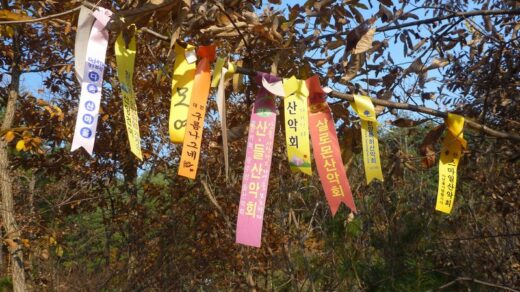 Understanding Korea and Koreans from the wider geopolitical context yields important insights into the newly confident nation we find today. Anyone doing business in this dynamic economy can expect to increase their effectiveness by learning about recent Korean history and its position in the region.
Understanding Korea and Koreans from the wider geopolitical context yields important insights into the newly confident nation we find today. Anyone doing business in this dynamic economy can expect to increase their effectiveness by learning about recent Korean history and its position in the region.
Mark Minton boasts of a long history in E. Asia, as a US diplomat in Japan and Korea, and later in Mongolia as US Ambassador. In this discussion with KBC host Tom Tucker, Ambassador Minton shares deep insights about modern Korea and doing business there.
Click here [EXPIRED LINK REMOVED:https://stevenbammel.com/category/archives/kbcforum/topics/korea-business-central-457] to listen to the interview, download the .mp3, subscribe in iTunes, read the transcript and or discuss this interview and this topic with other members of Korea Business Central visit the English-language discussion link.
Click here for the full list of interviews in the 2011 Korea Business Interview Series, or here for the 2010 interviews.
I also tried something new this time, which was to prepare my own short video synopsis of the interview:
[EXPIRED LINK REMOVED: https://youtu.be/r3l2NFn__rU]
Main Points of the Interview
Topic #1 – Ambassador Mark Minton and The Korea Society, An Overview
- In between stints in Asia, Ambassador Minton also spent long periods of his career in New York City, with the Foreign Service, as well as the US Mission to the United Nations, and now with the Korea Society. He notes that in the short period of time between his previous time in NYC and now, the profile of Korean culture films and arts has risen dramatically.
- The Korea Society is the foremost and oldest non-profit private organization in the US dedicated to expanding understanding of Korea in the US and promoting exchange between the American and Korean people. It was established by General Van Fleet, who had been a US general in the Korean War. The Society has grown along with the increasing success of Korea.
- Lately the Society has been active in promoting Korean film with the Museum of the Moving Image in New York though a large, annual film festival.
Topic #2 – The Korea-Japan Relationship
- The relationship between Korea and Japan has been difficult, perhaps because the two countries are so close in proximity but have distinct cultures. This historical friction is dissipating quickly with the younger generations in each country extremely interested in each other. Tourism is rising fast.
- The interests of the two countries, being successful economies and democracies, are converging in the modern era. The current administration of Korean President Lee Myung-bak has handled relations with Japan with a mature, sophisticated and sensitive approach.
- The Japanese have looked at the Korean achievements of the last 25-30 years and truly respect it and have been impressed by it.
- Japan was the first East Asian country to successfully modernize and as Korea was a late-comer to this development, Korean President Park Chung-hee, explicitly folled Japanese models, though he used them with Korean characteristics. Today, Korea is increasingly innovating on its own.
- It is clear that there’s still a symbiotic relationship between Japan and Korea, but Koreans will expand even further to take on other partners, especially as Korea signs FTAs with more and more other countries and sells its products around the world.
Topic #3 – The Korea-Mongolia Relationship
- Ambassador Minton served as US Ambassador to Mongolia from September 2006 until September 2009.
- Mongolia is the only true democracy in central Asia, making it politically and culturally unique in the region. It is located between China and Russia and so its foreign policy is to reach out to the broader world, economically, policically and diplomatically, so that it has options beyond just China and Russia.
- Mongolians consider Koreans to be the closest people in the world to them. History shows there has been some migratory connection between Mongolia and Korea in the past, and the two countries share cultural characteristics, which makes Mongolians feel comfortable dealing with Koreans.
- Going forward, we will be hearing more and more about Mongolia as world-class mineral assets in uranium, coal, copper, gold and others come online. Major mining companies are just now beginning to develop these assets, which are some of the largest undeveloped deposits in the world. It is expected that the Mongolian economy will start growing at around 10% per year over the next decade.
- Korea is looking to Mongolia as a source of raw materials, but Korean construction companies are also well-placed to build the infrastructure that Mongolia is going to need for its new economy.
- Mongolia may also become an attractive tourist destination for Koreans, as it’s only two and a half hours by plane from Seoul. There is a lot of open space and beautiful scenery.
- China is the 800-pound gorilla in the living room for Mongolia, which dictates that China will be the major customer for Mongolian resources. But Mongolia is also looking to develop other partnerships, and Korea has a major role to play in this.
Topic #4 – Significant Events in Modern Korean History
- The Korea Society recently held a seminar to discuss the new book “The Park Chung Hee Era”. President Park is the modern figure who transformed the Korean economy and created the foundation for what the Korean economy has become today.
- There is a lot of debate even today about the extent to which the policies of the Park era may have retarded political developments of the country.
- Looking at the major events of modern Korean history, we can see that each led to the next. The Park Chung Hee coup d’etat of 1961 fired the trigger, but its success in raising the living standards of Koreans lead to protests for more freedoms with the Gwangju Uprising in 1980 and the June Democracy Movement of 1987, and ultimately to democracy.
Topic #5 – Korean Viewpoint on the Signing of FTAs
- By signing FTAs with the US and with the EU, as well as other countries, Korea is looking to draw itself closer to these major Western economies, which will have all sorts of positive payoffs and benefits for the relationship as a whole, including as a counterweight to China as Korea’s trade with China increases.
- In addition, the US-Korea FTA is so complex and well-considered that it reaches into so many regulations, laws and practices, that when it is implemented, it will have an effect of enhancing the efficiency and transparency of the Korean domestic economy and the way it is managed, bringing Korean activities up to international norms.
Topic #6 – “The Hub of Korea”
- Korea has considerable assets to become a hub. It is geographically positioned this way in northeast Asia and is complemented by the marvelous Incheon Airport, as well as Songdo city, which is an attempt to create virtually a complete new city oriented towards international commerce and business.
- Korea also has a role to play as a hub in the politcal dimension, too. As host of the G20 meeting last year, as of the Nuclear Nonproliferation Summit next year, Korea is increasingly becoming a kind of honest broker in international politics, as well as diplomacy. This is reinforced by the symbolism of the re-election of Korean Ban Ki-moon as Secretary General of the United Nations.
Topic #7 – Wrap-Up
- When we think of “Korea” these days, we inevitably think of something contemporary first. A good keyword to use to describe Korea would be “successful innovation”, not only in economics, but also in political, cultural and international diplomacy, too.
- Going forward, The Korea Society is looking to capitalize on “Hallyu”, or the Korean Wave, which is beginning to take hold in the United States as well. There’s a growing awareness of the world of arts and design in Korea, particularly Korean film and literature.


